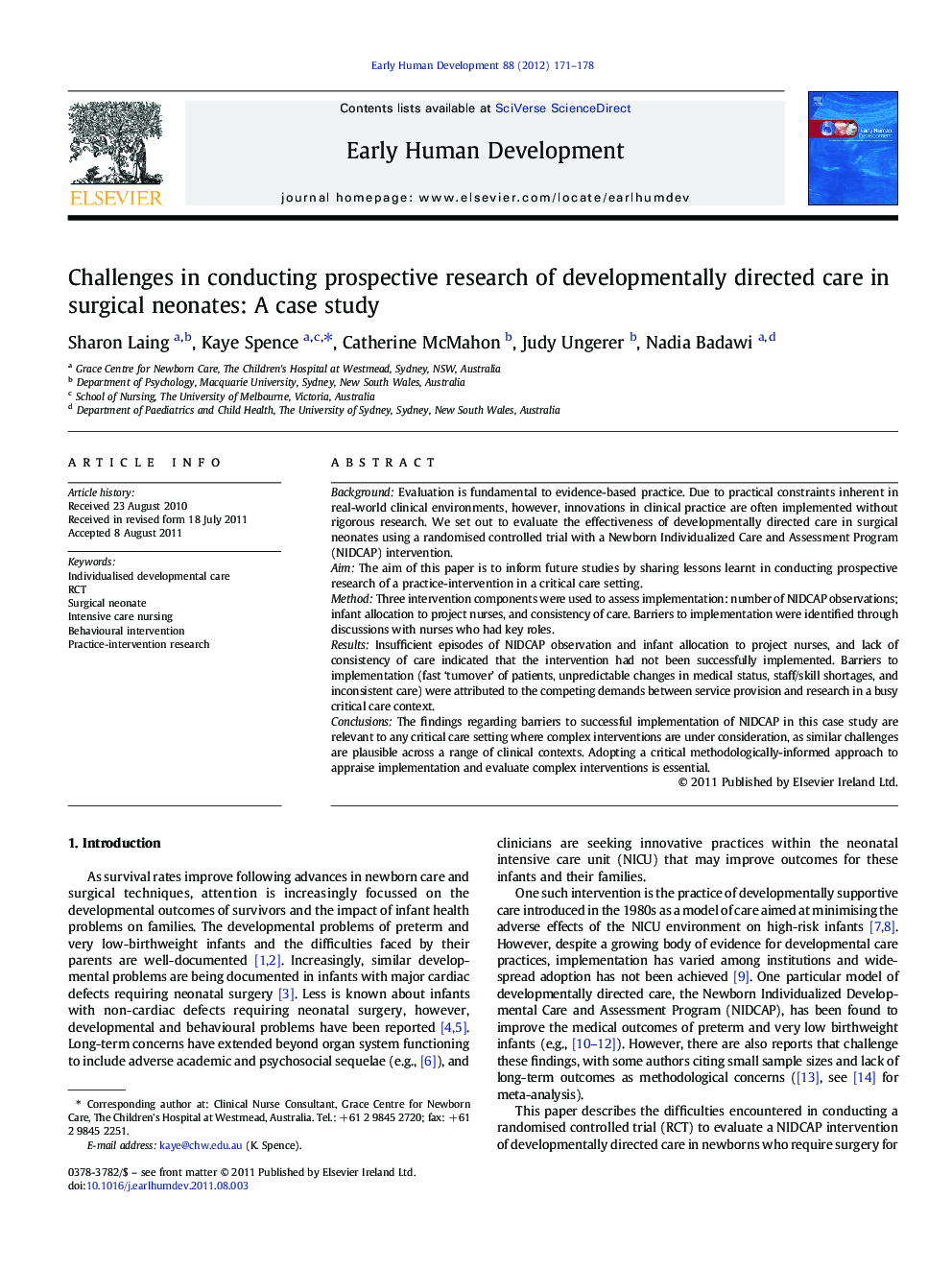| Article ID | Journal | Published Year | Pages | File Type |
|---|---|---|---|---|
| 3918429 | Early Human Development | 2012 | 8 Pages |
BackgroundEvaluation is fundamental to evidence-based practice. Due to practical constraints inherent in real-world clinical environments, however, innovations in clinical practice are often implemented without rigorous research. We set out to evaluate the effectiveness of developmentally directed care in surgical neonates using a randomised controlled trial with a Newborn Individualized Care and Assessment Program (NIDCAP) intervention.AimThe aim of this paper is to inform future studies by sharing lessons learnt in conducting prospective research of a practice-intervention in a critical care setting.MethodThree intervention components were used to assess implementation: number of NIDCAP observations; infant allocation to project nurses, and consistency of care. Barriers to implementation were identified through discussions with nurses who had key roles.ResultsInsufficient episodes of NIDCAP observation and infant allocation to project nurses, and lack of consistency of care indicated that the intervention had not been successfully implemented. Barriers to implementation (fast ‘turnover’ of patients, unpredictable changes in medical status, staff/skill shortages, and inconsistent care) were attributed to the competing demands between service provision and research in a busy critical care context.ConclusionsThe findings regarding barriers to successful implementation of NIDCAP in this case study are relevant to any critical care setting where complex interventions are under consideration, as similar challenges are plausible across a range of clinical contexts. Adopting a critical methodologically-informed approach to appraise implementation and evaluate complex interventions is essential.
